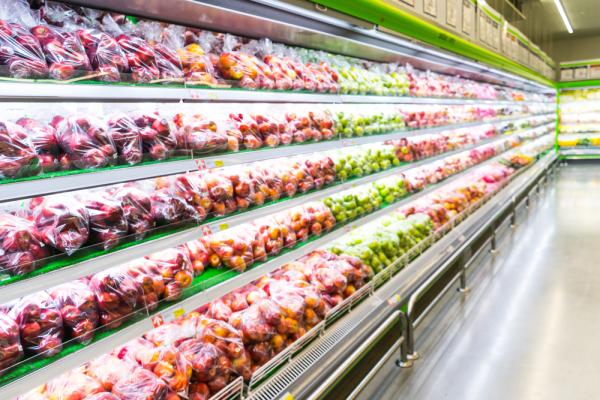When it comes to matters involving food -- shopping for, eating and disposing of it, just to name a few -- it's surprising how lack of awareness factors into each area. And once again this appears to be a recurring theme given the tepid news coverage of World Food Day last Sunday, coupled with a recent survey of Americans about food consumption and overall food waste.
World Food Day, established in 1979, is a global initiative described by the organization as "a day of action against hunger. On October 16, people around the world come together to declare their commitment to eradicate hunger in our lifetime."
A eminently laudable goal, it's hard not to get behind the effort to address worldwide hunger concerns, as well as those here in the United States. But a news search of the seemingly-big day produced a startling paucity of information from major, credible outlets, giving the impression that WFD was basically met with one collective yawn. And it's not as if we don't have hunger and poverty in this country, or that it's solely a third-world problem. WorldFoodDayUSA.org states that, "Even in the U.S., one of the richest countries in the world, one in seven Americans -- 14.3 percent -- does not have enough to eat."
Ok, that's one impression. Adding to that is the Food & Health Survey released by the International Food Information Council Foundation, which it has produced annually since 2006. Conducted by the market research firm Greenwald Associates, 1,003 adults were asked dozens of questions from these seven topics:
- Food Information Landscape
- Dietary Components
- Food Safety
- Food Production
- Healthy Eating Styles
- Food Ingredients
- Sustainability
While some questions produced expected results, others revealed a notable lack of awareness among the respondents -- in some cases bordering on self-denial -- about eating patterns and overall food consumption.
When each was asked to evaluate their "general health," nearly 9 in 10 said it was between good and excellent -- 31 percent responded "good"; 42 percent responded "very good"; and 14 percent as "excellent." That's a bit surprising when compared to a sobering statistic on individual weight from the Centers for Disease Control, which states that "more than one-third (36.5%) of U.S. adults have obesity."
Taking the survey a step further, the respondents' Body Mass Index was taken into account. And for those who identified themselves as obese, 77 percent "considered their health to be good or better" -- 38 percent "good"; 33 percent "very good"; and 6 percent "excellent." (See 2016 graph, below left.)

(Credit: International Food Information Council Foundation, 2016 Food and Health Survey)
Lastly, there was this, revealing another apparent disconnect between perception and reality. Taken on a macro level, despite the above data from the survey and the obesity figure from the CDC, 80 percent of respondents said they "will stop eating when they’ve had enough but not too much."
Now while a survey of 1,000+ respondents to a 29-minute (on average) online interview shouldn't be construed as conclusive evidence, the point here is that the weighted survey shines a light on what food consumption looks like, and how people perceive themselves and their actions.
And finally, there's the major issue of the astonishing amount of food we throw away annually as a nation. According to figures from the Department of Agriculture "food waste is estimated at between 30-40 percent of the food supply. This estimate, based on estimates from USDA's Economic Research Service of 31 percent food loss at the retail and consumer levels, corresponded to approximately 133 billion pounds."
While the majority of those surveyed, according to IFIC, said "they're taking steps to reduce food waste -- taking leftovers home from restaurants (58 percent), using leftovers from cooking (53 percent), planning their meals (51 percent), and making shopping lists (51 percent), while 47 percent say they use or freeze leftovers in a timely manner" -- that's welcome news. But clearly Americans should try to make a better effort of matching their food purchases to their appetites.
More, of course, isn't always better. If you're prone to ordering more food then needed, with the idea that the leftovers will eventually be eaten, you might want to rethink that notion since our kitchen garbage cans and ever-growing landfills are telling us differently. And if you're interested in learning about ways to reduce wasted food at home, take a quick look at this webpage from the EPA.




